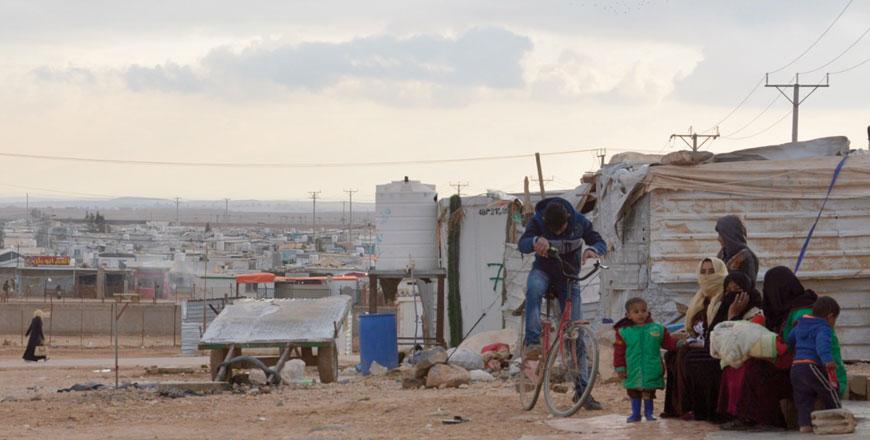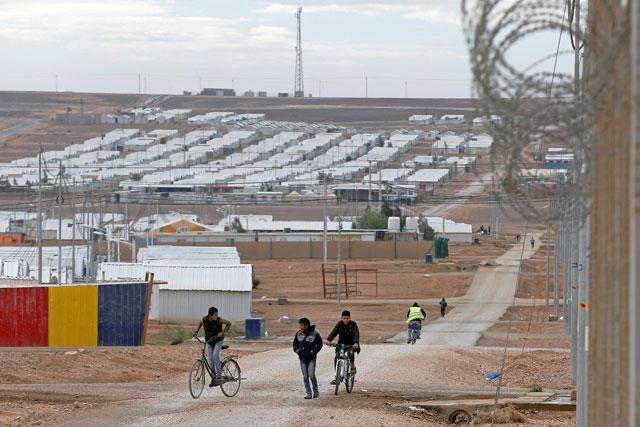You are here
UN warns of new Syrian refugee wave to Europe if aid dries up
By Reuters - Dec 12,2017 - Last updated at Dec 12,2017
GENEVA — Syrian refugees could again seek to reach Europe in droves if aid programmes are not sustained in five neighbouring countries hosting the bulk of them, the United Nations said on Tuesday.
The UN High Commissioner for Refugees (UNHCR) was giving details of the $4.4 billion appeal to support 5.3 million Syrian refugees in surrounding countries as well as to host communities in Turkey, Lebanon, Iraq, Jordan and Egypt that have taken them in.
The agency, which has received only 53 per cent of its $4.63 billion appeal for 2017, needs international support, Amin Awad, director of UNHCR's Middle East and North Africa bureau, told a news briefing.
He listed "many reasons", including: "The vast number of refugees that we have in the region, the geopolitical status of that region, the risk that a population of 5.3 million people can bring to an area, a small region already volatile as it is, if there is no assistance.
"We had the experience of 2015, we don't want to repeat that," he said.
The lack of funding led to an acute shortage of services that year, when one million refugees fled to Europe, he added. About half were Syrians, UNHCR figures show.
An EU-Turkey deal has largely halted the flow, but a UNHCR funding shortfall has led to fresh cutbacks in vital programmes providing food, health care, education and shelter to Syrian refugees, Awad said.
"That means we are not able to provide stoves, we are not able to deliver kerosene, we are not able to deliver enough thermal blankets, we are not able to winterise tents, we are not able to drain water and snow from camps, we are not able to do engineering work to insulate some of the buildings. People are sitting in cold, open buildings," he said.
Turkey currently hosts 3.3 million Syrian refugees, the largest number, followed by Lebanon with one million.
"These are the biggest donors, these are the real donors. They provided space, international protection," Awad said.
"Now the material assistance is left to the donors and international community... And that's not coming through. So we have to be prepared for consequences," he said.
Awad, asked about countries in the region closing their borders to Syrian refugees, replied: "Borders are managed, in some instance are closed."
Host countries have cited concerns over security, economic crises, and xenophobia, but Syrians continue to arrive, he said.
"Lebanon is still accepting vulnerable cases, medical cases, so is Turkey," Awad said.
There have been cases of "refoulement", returning refugees to places where they could face war or persecution, in violation of law, he said. "We are seeing expulsion, we are seeing people sent back."
UNHCR spokesman Adrian Edwards declined to provide specifics on Syrian refugees being expelled.
Related Articles
AMMAN — UNHCR High Commissioner Filippo Grandi on Saturday started his second visit to Jordan "as part of a broader mission to the region",
AMMAN — The UN Refugee Agency (UNHCR) on Monday appealed for $270 million in urgent funding, seeking to address the needs of internally disp
AMMAN — The United Nations and aid partners on Tuesday said they need $5.5 billion to support countries hosting millions of Syrian refugees,


















